#18th century book
Text
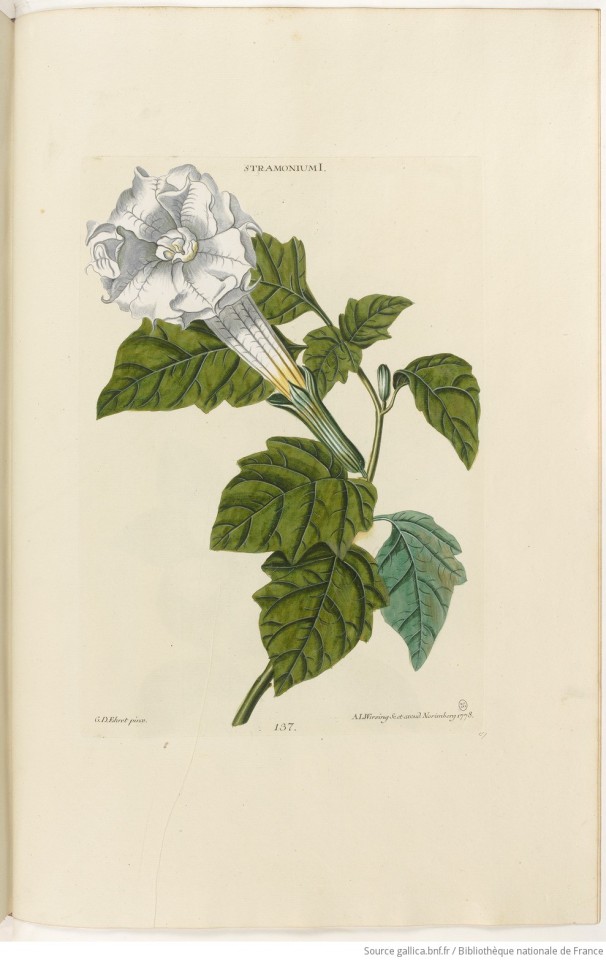

Datura stramonium (thorn apple, jimson weed, devil's snare, or devil's trumpet) taken from 'Hortus nitidissimis omnem per annum superbiens floribus Amoenissimorum florum imagines' by Christopher Jacob Trew.
Published 1768-1786.
Bibliothèque nationale de France.
174 notes
·
View notes
Text
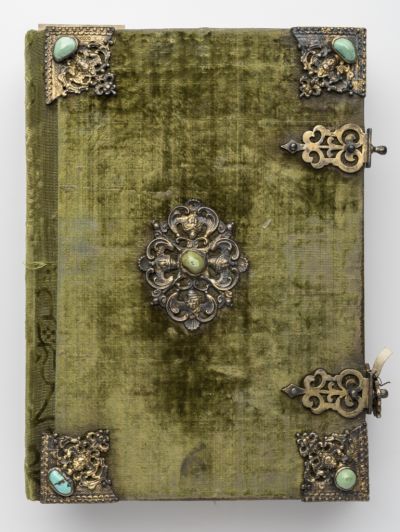
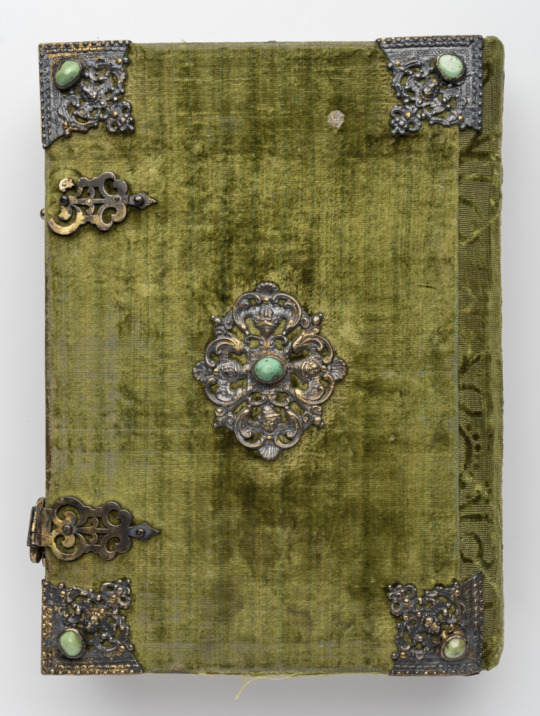
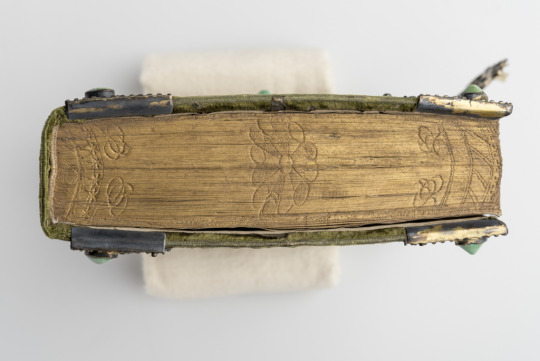
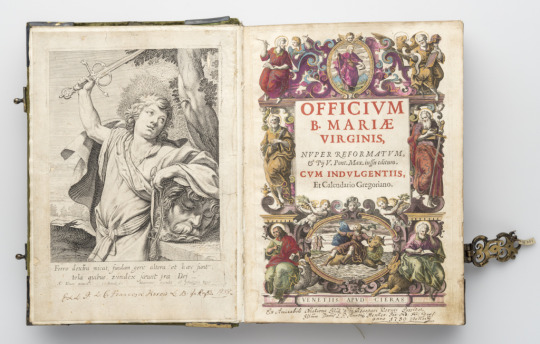

▪︎ Book - Officium B. Mariae Virginis.
Date: 18th century
Place of origin: Germany
Medium: paper; silk velvet; turquoise; wooden board.
447 notes
·
View notes
Text
"What can I say, that will enable you to understand the depth of my sorrow?"
Mary Shelley, Frankenstein
#mary shelley#frankenstein#poetry#poem#words#writing#quote#books#book quote#18th century#18th century book#spilled ink#spilled thoughts#spilled poetry#spilled writing
4 notes
·
View notes
Note
While we’re on the subject of names, is there an explanation for how traditional nicknames came about that are seemingly unrelated to, or have little in common with, the original name?
ie- John/Jack, Richard/Dick, Henry/Harry/Hank, Charles/Chuck, Margaret/Peggy/Daisy, Sarah/Sally, Mary/Molly, Anne/Nan, etc
I am actually over a week into researching a huge follow-up post (probably more than one if I’m being honest) about the history of nickname usage, so I will be going into this in much, much more detail at a hopefully not-so-later date - if I have not lost my mind. (Two days ago I spent three hours chasing down a source lead that turned out to be a typographical error from 1727 that was then quoted in source after source for the next 150 years.)
As a preview though, here’s some info about the names you mentioned:
The origins of a good portion of common English nicknames come down to the simple fact that people really, really like rhyming things. Will 🠞Bill, Rob🠞Bob, Rick🠞Dick, Meg🠞Peg.
It may seem like a weird reason, but how many of you have known an Anna/Hannah-Banana? I exclusively refer to my Mom’s cat as Toes even though her name is Moe (Moesie-Toesies 🠞 Toesies 🠞 Toes).
Jack likely evolved from the use of the Middle English diminutive suffix “-chen” - pronounced (and often spelled) “-kyn” or “kin”. The use of -chen as a diminutive suffix still endures in modern German - as in “liebchen” = sweetheart (lieb “love” + -chen).
John (Jan) 🠞 Jankin 🠞 Jackin 🠞 Jack.
Hank was also originally a nickname for John from the same source. I and J were not distinct letters in English until the 17th Century. “Iankin” would have been nearly indistinguishable in pronunciation from “Hankin” due to H-dropping. It’s believed to have switched over to being a nickname for Henry in early Colonial America due to the English being exposed to the Dutch nickname for Henrik - “Henk”.
Harry is thought to be a remnant of how Henry was pronounced up until the early modern era. The name was introduced to England during the Norman conquest as the French Henri (On-REE). The already muted nasal n was dropped in the English pronunciation. With a lack of standardized spelling, the two names were used interchangeably in records throughout the middle ages. So all the early English King Henrys would have written their name Henry and pronounced it Harry.
Sally and Molly likely developed simply because little kids can’t say R’s or L’s. Mary 🠞 Mawy 🠞 Molly. Sary 🠞 Sawy 🠞 Sally.
Daisy became a nickname for Margaret because in French garden daisies are called marguerites.
Nan for Anne is an example of a very cool linguistic process called rebracketing, where two words that are often said/written together transfer letters/morphemes over time. The English use of “an” instead of “a” before words beginning with vowels is a common cause of rebracketing. For example: the Middle English “an eute” became “a newt”, and “a napron” became “an apron”. In the case of nicknames the use of the archaic possessive “mine” is often the culprit. “Mine Anne” over time became “My Nan” as “mine” fell out of use. Ned and Nell have the same origin.
Oddly enough the word “nickname” is itself a result of rebracketing, from the Middle English “an eke (meaning additional) name”.
I realized earlier this week that my cat (Toe’s sister) also has a rebracketing nickname. Her name is Mina, but I call her Nom Nom - formed by me being very annoying and saying her name a bunch of time in a row - miNAMiNAMiNAM.
Chuck is a very modern (20th century) nickname which I’ll have to get back to you on as I started my research in the 16th century and am only up to the 1810s so far lol.
#names#nicknames#onomastics#history#asks#nicknames are really hard to research you guys#there is so much info out there and it's almost all nonsense#and I'm talking academic books with listed sources not buzzfeed listicles#some guy in the 18th century forgetting to mention Bill on a list of common nicknames does not mean it wasn't in use at the time ma dude#i've had to get very creative with sources#god bless word for word murder trial testimony
2K notes
·
View notes
Text
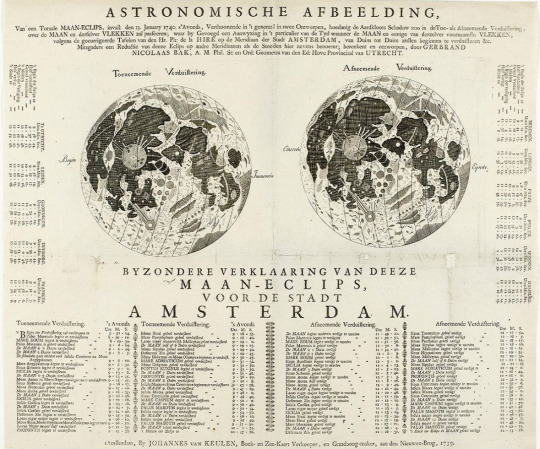
Lunar eclipse | By Johannes van Keulen, 1739.
#moon#academia#aesthetic#old books#space#astronomy#history#johannes van keulen#lunar eclipse#1739#18th century#engraving#tale
2K notes
·
View notes
Text
Forgive me for making yet another post about the French Revolution but one small detail that makes me laugh is when, as things started to go seriously wrong, one of Louis XVI's advisers tried to persuade him & Marie-Antoinette to get away from Paris and wait for things to calm down (the idea was "if you lay low and wait, the newly-created National Assembly will vote something stupid and lose popular support" which was a solid plan honestly.) But he was also like "whatever you do, DO NOT go East or South or people will think you'll get help from other monarchies to restore your power and that won't calm things down"
So the King was advised to flee to Normandy, which... is just a short ferry ride away from another monarchy. But that's completely different since it's England. To be fair to the English, the French monarchy had basically bankrupted itself a few years back to send millions in support of the American revolutionaries because it would be a shame not to take advantage of "perhaps the best opportunity for centuries to come to put England in its place" (actual quote by France's minister of Foreign Affairs in 1777)
—still I love the realistic approach of the King's adviser telling him, Sire you can't go near any of our borders rn, it'll escalate the situation, Parisians will know you're trying to get another country to help. Obviously you can go set up camp right across the sea from England though, that's fine since everyone knows the English wouldn't piss on us if we were on fire¹
¹ Perfidious Albion was like "aw no France is in turmoil and possibly weakened :) a shame :)" exactly like France re: them at the start of the US independence war
² they also thought well these backward french are finally following our glorious example and entering civilisation (parliamentary monarchy)
³ and only when the Girondins started being like "let's spread the French Revolution to the whole universe!!! or at least Belgium" did England finally decide "it's been a while since we last declared war on France actually" (but it was too late for Louis XVI)
⁴ That's not how footnotes work sorry. Trying to make my post look fancier
#autumn is when i read books about my pet century (the 18th)#current one is simone bertière's excellent biography of marie-antoinette which mentions all the above and much more!#i discovered that when she was a prisoner marie-antoinette used paul & virginie as a book cipher to encrypt her letters which made me laugh#i'll be the first to say it but paul & virginie was the Twilight of the 18th century#good on our late austrian queen for finding a use for this boring preachy novel
2K notes
·
View notes
Text

I HEARD YOU LIKED TO READ???
Yes, yes I do
Frobin has a chokehold on me guys, I love these two so much, THEY GET EACH OTHER, THEY’RE WONDERFUL!!!
I headcanon that Franky’s a comic book reader, he has that vibe. I intend on making a follow up drawing one day where they’re reading together
#frobin#one piece#nico robin#cyborg franky#franky#my art#mangocatastrophe#artists of tumblr#fanart#one piece fanart#robin x franky#franky x robin#cutty flam#ship art#comic books#reading#they’re so cute#YOUR HONOR I LOVE THEM#ADORABLE LITTLE SHITS#I reckon maybe Robin’s an 18th century classics enjoyer (if that made sense in the time line of OP)#Like#she enjoys sherlock#and jane austen#and all that jaz#besides the history books I meam#headcanon#hcs
1K notes
·
View notes
Photo

8K notes
·
View notes
Text

#art#etching#book illustration#illustration#dance of death#german art#danzig#berlin#18th century art#allegorical#symbolism#der Totentanz#daniel nikolaus chodowiecki
396 notes
·
View notes
Text
Ms. Coll. 390, Item 2676, is a picture book, containing drawings and miniature paintings of birds and animals, mythological beings, scenes of daily life, court scenes, and more. Many of the pictures are unfinished, upside-down or overpainted, suggesting a work in progress or a sketchbook. It is written in Sanskrit, circa 1700-1850.
🔗:
#manuscript#sanskrit#south asia#18th century#19th century#drawings#art#history of art#indian art#india#animals#birds#painting#sketchbook#picture book#book history#rare books
310 notes
·
View notes
Text

'Monssonia Speciosa' (Butterfly Flower).
Botanical illustration taken from 'Le Jardin du Roi' by Pierre-Joseph Buc'hoz.
Published 1792.
Bibliothèque nationale de France, département Réserve des livres rares.
250 notes
·
View notes
Text

Marbled book cover. Bibliotheca runica. 1766.
Internet Archive
464 notes
·
View notes
Text
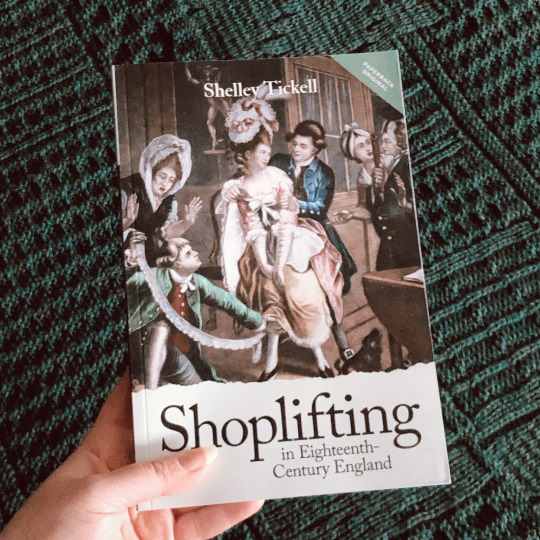
Currently Reading: Shoplifting in Eighteenth-Century England, by Shelley Tickell
I do love an incredibly specific historical non-fiction read. Bonus points for an absolutely scandalous cover image. Oh my. 👀
#am I on an 18th century history kick?#yes yes I am#shoplifting in eighteenth-century england#Shelley tickell#reading#read#book#bookblr#booklr#books#history#nonfiction#non-fiction#currently reading#current read
101 notes
·
View notes
Text
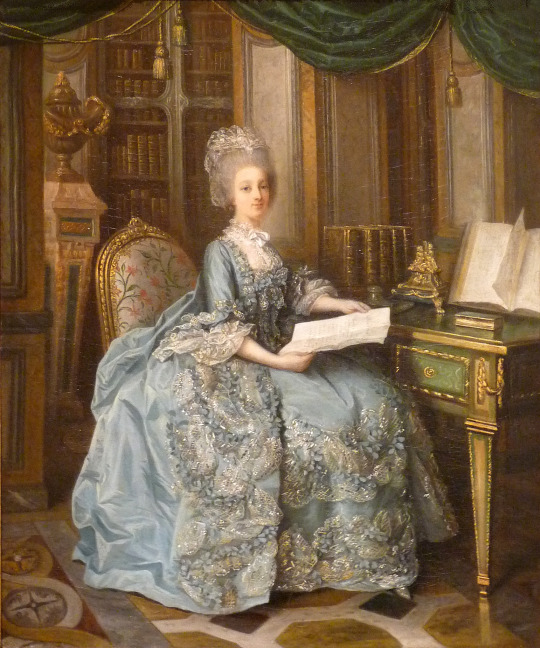
Sophie of France by Lie Louis Perin-Salbreux, 1770-1774.
#classic art#painting#lie louis perin salbreux#french artist#18th century#portrait#female portrait#indoor portrait#princess#house of bourbon#fashion#blue dress#books#desk#chair
124 notes
·
View notes
Text
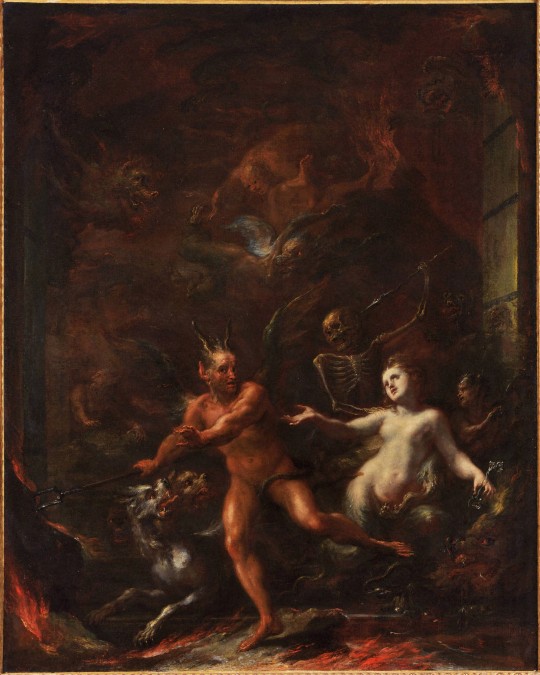
At the Gates of Hell by Giacomo del Po, 1703
#art#chaotic academia#classic academia#dark academia#illustration#oil painting#classic art#light academia#oil on canvas#books & libraries#heaven#hell#hell paintings#hell art#18th century#1700s#dark academia art#dark academia aesthetic#dark academism#literature
169 notes
·
View notes
Photo

Truly inspiring lyrics from A Collection of Songs (With Some Originals), from 1769
1K notes
·
View notes